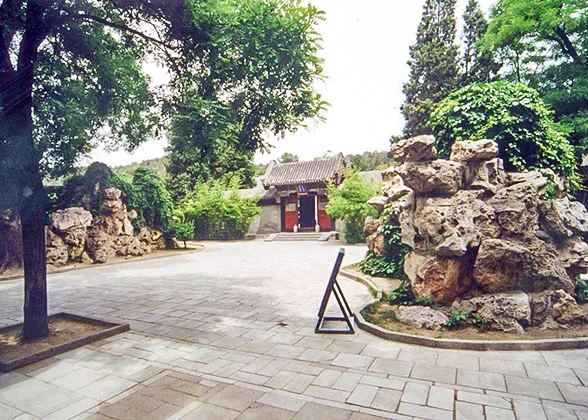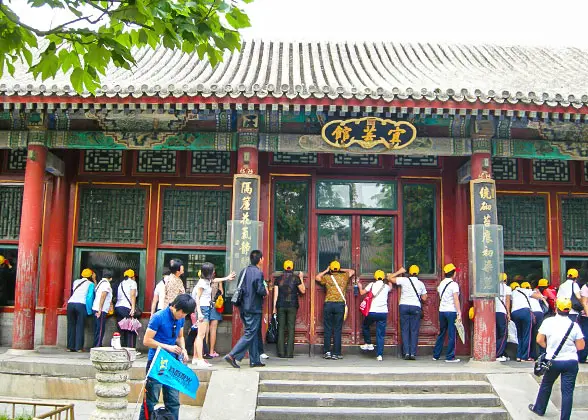Hall of Fragrant Rue (Yiyunguan)
Constructed in 1750, the Hall of Fragrant Rue (Yiyunguan) was originally a library for emperors. It was burnt down in 1860 and rebuilt in 1886, after which it was converted into the bedroom of Empress Longyu (1868~1913).
|
|
The Hall of Fragrant Rue complex consists of two courtyards. The first courtyard comprises its gate, the main hall, the Pavilion by the West, Studio of Remaining Insight, and covered walkways. The second courtyard serves as a transitional area, connecting to the Garden of Virtue and Harmony in the east, the Longevity Hill in the north, and the Hall of Joyful Longevity in the west.
Key Building: Hall of Fragrant Rue
Named by Emperor Qianlong (1711~1799), the main Hall of Fragrant Rue takes its name from a fragrant herb "rue" (Yun in Chinese) used anciently to repel bookworms, so that the name would fit its use as a repository for books.
The hall comprises five rooms at the front and three at the rear, with doors on both ends. At its heart lies a throne atop a platform, framed by an elegant screen at the back and a desk at the front, all complemented by exquisite carved floor-length partition screens. Notably, the throne is crafted with various precious materials like gems and pearls inlaid.
Situated near a lotus pond by Kunming Lake, the hall is enveloped by the fragrance of blooming lotus flowers every year. The couplet on its pillars reads: "Moss around the stone steps turns green, and the fragrance of flowers silently wafts through the bamboo curtains."
In 1886, Empress Longyu lived in the Hall of Fragrant Rue, whose marriage with Emperor Guangxu (1871~1908) was arranged by Empress Dowager Cixi (1835~1908) just for political gain.
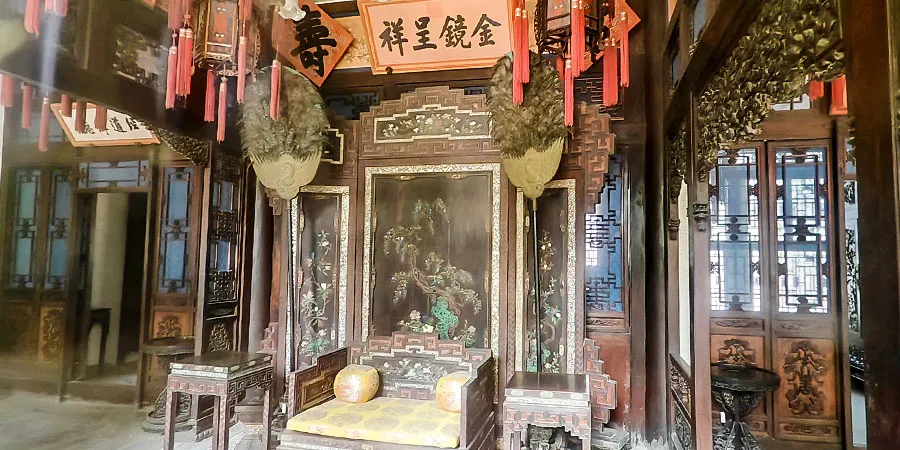 |
| Fragrant Rue Hall Interior |
Empress Longyu's Lonely Life in the Hall
Empress Longyu led a lonely life in the Hall of Fragrant Rue. She was disliked by the emperor, and she even dared not reprimand the eunuchs too harshly as they didn't pay respect to this less favored empress.
Though missing family too much, she could only meet her father when he was on duty in the Summer Palace. When her family asked for a photograph to alleviate their longing for her, she worried for days about being caught by Empress Dowager Cixi who hated photography that time, and finally arranged for a secret photo shoot in the Hall of Fragrant Rue.
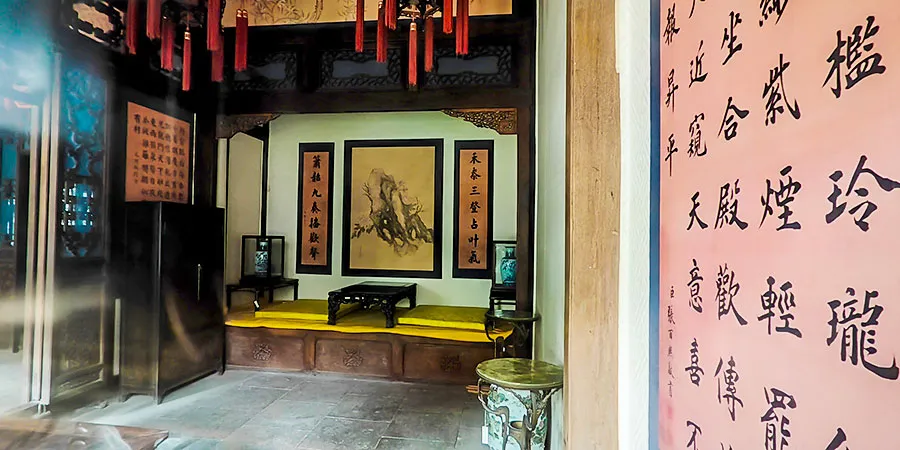 |
| Inside Hall of Fragrant Rue |
Financially, she was also in a bind. Despite being formally responsible for managing the palace's finances, she had limited control over most funds, which were predominantly used to cater to the extravagant demands of the royal family members. In 1891, when the emperor's father passed away, she was so financially strained that she pretended to be sick to avoid the expense of tipping servants, a customary and costly practice.
Gate of Fragrant Rue
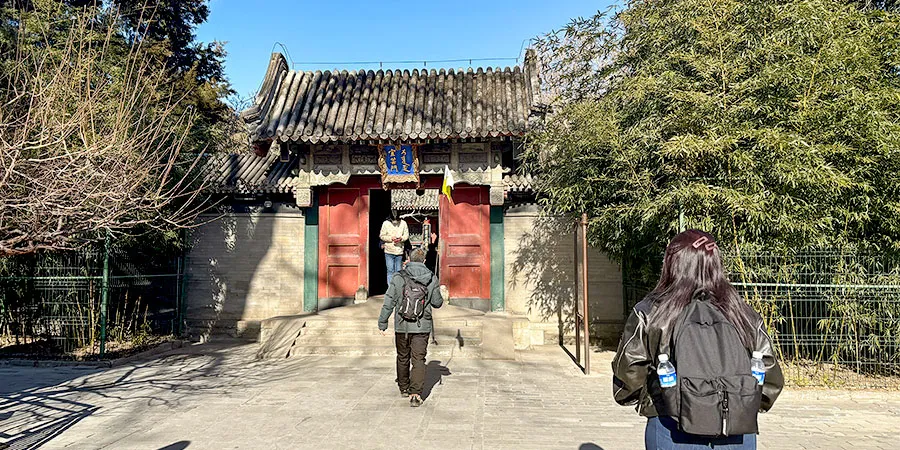 |
| Gate of Fragrant Rue |
South of Hall of Fragrant Rue stands the Gate of Fragrant Rue, the entrance to the complex. Upon entering, its flanking inner walls are embedded with ten stone inscriptions, which are Emperor Qianlong's calligraphy imitating ancient calligraphers.
Studio of Remaining Insight
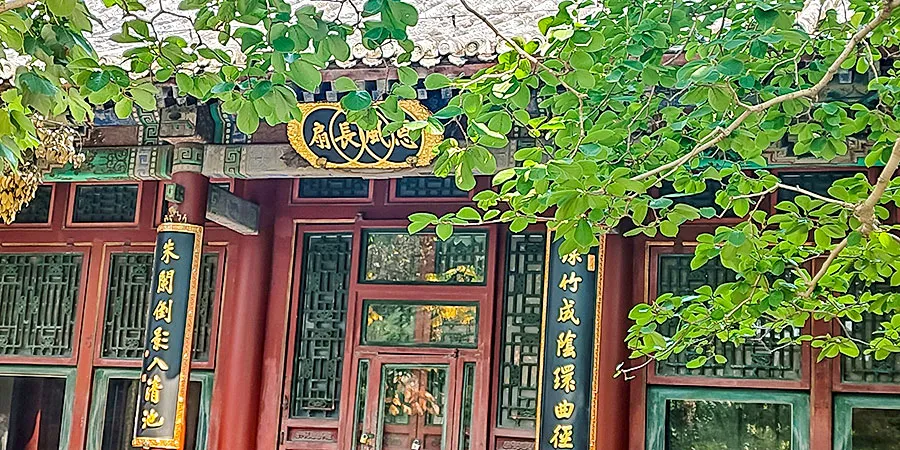 |
| Studio of Remaining Insight |
The eastern side hall is named Studio of Holding Insight. Emperor Qianlong named it “Holding Insight” to express that when reading in the Hall of Fragrant Rue, one would gain insights from the books; when seeing the landscapes by the Kunming Lake, one would find enlightenment in nature.
Pavilion by the West
Since it is close to Kunming Lake and offers a distant view of the western hills, this western side structure is named "Pavilion by the West". The couplet on the pillars depicts the spring scenery of this pavilion: thousands of tender green willow branches obscure the gate, and the orioles chirp as they fly into the garden.
Nearby Attraction: Pavilion of Sunset Delight
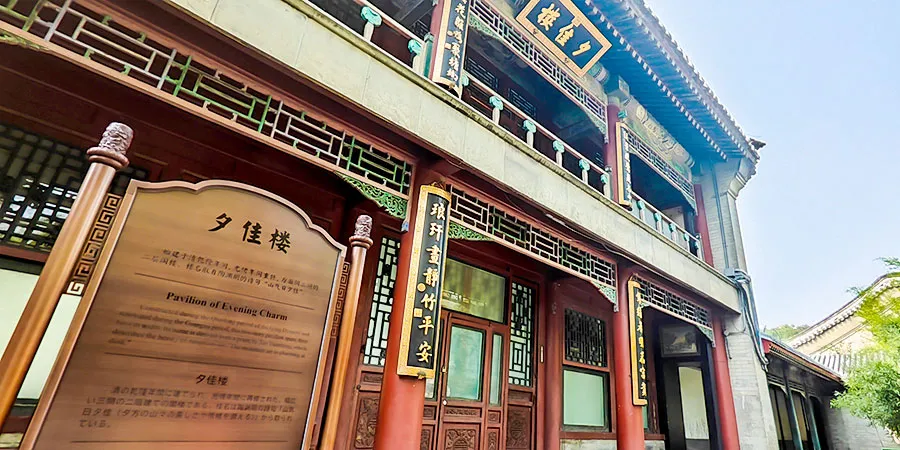 |
| Pavilion of Sunset Delight |
The Pavilion of Sunset Delight, located between the Hall of Jade Ripples and Hall of Fragrant Rue, is a two-floor building facing the Kunming Lake. It boasts windows opening to both east and west, offering the best view of sunsets in the Summer Palace.
From its windows, you can see the massive sun slowly descending, casting a golden afterglow over the splendid palaces. Birds chirp and dart across the sky, while fish and ducklings swim beneath the elegant lotus leaves, all adding to the serene ambiance.
Emperor Qianlong often expressed how he loved to view scenery at the Pavilion of the Sunset Delight in his poems, especially while admiring the misty Kunming Lake shimmering with the setting sun. However, he never watched sunsets here, as he had established a rule to visit Summer Palace only during daytime, never staying overnight, to show his diligence for state affairs.
![]() Next: Hall of Joyful Longevity
Next: Hall of Joyful Longevity
![]() Related Link: Summer Palace Travel Tips
Related Link: Summer Palace Travel Tips
